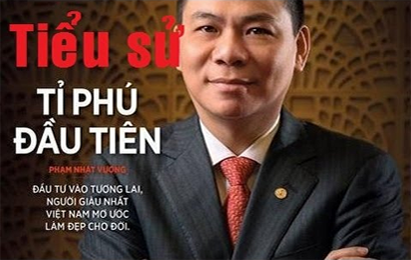Unit 12: MUSIC
Phần I TỪ MỚI
|
Word |
Transcript |
Audio |
Meaning |
Example |
|
classical music (n) |
/ˈklæsɪkl ˈmjuːzɪk/ |
|
nhạc cổ điển |
He plays classical music, as well as pop and jazz. |
|
communicate (v) |
/kəˈmjuːnɪkeɪt/ |
|
giao tiếp |
They communicated in sign language. |
|
compose (v) |
/kəmˈpəʊz/ |
|
sáng tác, soạn nhạc |
Ten men compose the committee. |
|
composer (n) |
/kəmˈpəʊzə(r)/ |
|
nhà sáng tác, soạn nhạc |
Verdi was a prolific composer of operas. |
|
delight (v) |
/dɪˈlaɪt/ |
|
làm cho vui vẻ, dễ chịu |
The children squealed with delight when they saw the puppy. |
|
emotion (n) |
/ɪˈməʊʃn/ |
|
tình cảm |
He lost control of his emotions. |
|
folk music (n) |
/fəʊk ˈmjuːzɪk/ |
|
nhạc dân gian |
|
|
funeral (n) |
/ˈfjuːnərəl/ |
|
đám tang |
Hundreds of people attended the funeral. |
|
gentle (a) |
/ˈdʒentl/ |
|
nhẹ nhàng, dịu êm |
He lived in a gentler age than ours. |
|
integral part (n) |
/ˈɪntɪɡrəl pɑːt/
|
|
phần thiết yếu |
Music is an integral part of the school's curriculum. |
|
jazz (n) |
/dʒæz/ |
|
nhạc jazz |
the rising stars of the New York jazz scene |
|
lull (v) |
/lʌl/ |
|
ru (ngủ) |
a lull in the conversation/fighting |
|
lyrical (a) |
/ˈlɪrɪkl/ |
|
trữ tình |
She wrote an almost lyrical account of her childhood. |
|
mournful (a) |
/ˈmɔːnfl/ |
|
tang thương, buồn thảm |
I couldn't bear the mournful look on her face. |
|
national anthem (n) |
/ˌnæʃnəl ˈænθəm/ |
|
quốc ca |
|
|
powerful (a) |
/ˈpaʊəfl/ |
|
mạnh mẽ |
one of the most powerful directors in Hollywood |
|
rousing (a) |
/ˈraʊzɪŋ/ |
|
khuấy động, hào hứng |
The team was given a rousing reception by the fans. |
|
serene (a) |
/səˈriːn/ |
|
thanh bình, tĩnh lặng |
a lake, still and serene in the sunlight |
|
solemn (a) |
/ˈsɒləm/ |
|
trang nghiêm |
a solemn and binding promise |
Phần II CÁC KIẾN THỨC CẦN HỌC
A. PRONUNCIATION : /s/ vs /z/
|
/s/ |
/z/ |
|
serene /səˈriːn/ |
rousing /ˈraʊzɪŋ/ |
|
solemn /ˈsɒləm/ |
music /ˈmjuːzɪk/ |
|
classical /ˈklæsɪkl / |
jazz /dʒæz/ |
|
sick /sɪk/ |
zip /zɪp/ |
|
sing /sɪŋ/ |
hazard /ˈhæzəd/ |
B. GRAMMAR:
1.To + infinitive to talk about purposes
To + V (infinite ) : Dùng để chỉ mục đích khi làm việc gì đó
= In order to/ so as to + V-infinite : để làm gì
Example :
- He works to get money. = He works in order to get money…
- It was late, so we decided to take a taxi home to sleep
- I tried my best to learn English to accomplish my dream to go abroad.
- I play soccer to keep fit
2.Wh - questions
|
USAGE |
|
|
DÙNG VỚI ĐỘNG TỪ “ TOBE” |
WH+ BE +S + (V) ? Be tuỳ theo thì, (v) có thể không có. Example : - What are you doing? - Where is she? - When were we silent?....... |
|
DÙNG VỚI ĐỘNG TỪ THƯỜNG. |
WH + DO, DOES/ DID+ S + Vo? EX: Where do you go? What does she study? When did they begin?...... |
|
ĐỐI VỚI CÁC THÌ HOÀN THÀNH |
WH + HAS, HAVE/ HAD +S +V3/ED? EX: Why has she gone to school? What had you eaten?........ |
|
ĐỐI VỚI “ MODAL VERBS” HAY WILL, SHALL, WOULD, SHOULD (May, can, must, could, might, ought to, have to là modal verbs) |
WH + MODAL VERBS + S + VO? EX: Why must you go? Where may she come? What can she do? What will she do?......... |
|
DÙNG VỚI HOW |
- How much + N (không đếm được luôn ở số ít) EX: how much money have you got? - How many + N (đếm được ở số nhiều) EX: how many students are there in your class? - How far: bao xa, how long : bao lâu, - How often : mấy lần, thường không, - How old : bao nhiêu tuổi…… |











